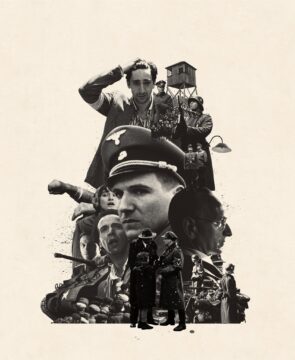Giles Harvey in the New York Times Magazine:
 The British philosopher Gillian Rose, who advised the Polish government on how to redesign the Auschwitz-Birkenau State Museum after the fall of Communism, believed that the new regime of memory was mired in bad faith. By framing the Holocaust as an unfathomable evil — “the ultimate event, the ultimate mystery, never to be comprehended or transmitted,” as the writer Elie Wiesel once put it — we were protecting ourselves, Rose argued, from knowledge of our own capacity for barbarism. “Schindler’s List” was a case in point. For her, Spielberg’s black-and-white epic, which sentimentalizes the Jewish victims and keeps the Nazi perpetrators at arm’s length, was really just a piece of misty-eyed evasion.
The British philosopher Gillian Rose, who advised the Polish government on how to redesign the Auschwitz-Birkenau State Museum after the fall of Communism, believed that the new regime of memory was mired in bad faith. By framing the Holocaust as an unfathomable evil — “the ultimate event, the ultimate mystery, never to be comprehended or transmitted,” as the writer Elie Wiesel once put it — we were protecting ourselves, Rose argued, from knowledge of our own capacity for barbarism. “Schindler’s List” was a case in point. For her, Spielberg’s black-and-white epic, which sentimentalizes the Jewish victims and keeps the Nazi perpetrators at arm’s length, was really just a piece of misty-eyed evasion.
A richer work, she suggested, would present the Holocaust as something legibly human and goad the viewer into asking an uncomfortable question: Could I have participated in this? In a startling passage from her final book, “Mourning Becomes the Law” (1996), Rose called for a film that would center on “the life story of a member of the SS in all its pathos, so that we empathize with him, identify with his hopes and fears, disappointments and rage, so that when it comes to killing, we put our hands on the trigger with him.” Instead of eliciting “sentimental tears,” like Spielberg’s production, such a film would leave us “with the dry eyes of a deep grief.”
“The Zone of Interest,” the astonishing new film from Jonathan Glazer, one of England’s most talented and unpredictable directors, can feel at times as if it were made to fulfill Rose’s desideratum.
More here.
